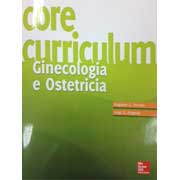344. Cognitive and Personality Factors Implicated in Pain Experience in Women With Endometriosis: A Mixed-Method Study.
Zarbo C, Brugnera A, Dessì V, Barbetta P, Candeloro I, Secomandi R, Betto E, Malandrino C, Bellia A, Trezzi G, Rabboni M, Compare A, Frigerio L.
Clin J Pain. 2019 Dec;35(12):948-957. doi: 10.1097/AJP.0000000000000757.
Abstract
OBJECTIVE:
The impact of pain on quality of life and mental health of women with endometriosis is well known. However, the role that personality traits and coping strategies might have in influencing pain experience is still poorly understood and was the chief purpose of this study.
MATERIALS AND METHODS:
We conducted a mixed-method sequential explanatory study, composed of a quantitative survey followed by qualitative interviews. The first quantitative phase included 162 women with endometriosis who completed a battery of validated questionnaires. After statistical analysis, a semistructured qualitative interview has been developed and conducted with 6 of them, in order to help explain findings obtained in the first phase. Thereafter, both analyses were combined in a metamatrix.
RESULTS:
From the metamatrix, it emerged that acute pain experience, fear of its occurrence, its unpredictability, and control difficulties are the main concerns of women with endometriosis. Worry trait characteristics (ie, the need for control, anticipatory anxiety, intrusive worry thoughts) and maladaptive thoughts such as coping strategies (ie, self-blame, rumination, catastrophizing) were common in this sample and seem to indirectly affect pain experience. Indeed, the unsuccessful struggle in controlling pain reinforces negative thoughts/beliefs and feelings of powerlessness, leading, in turn, to psychological distress and higher pain experience.
DISCUSSION:
From the study emerged a model of onset and maintenance of acute pain in women with endometriosis. Findings have clinical implications for the medical team and psychologists.
